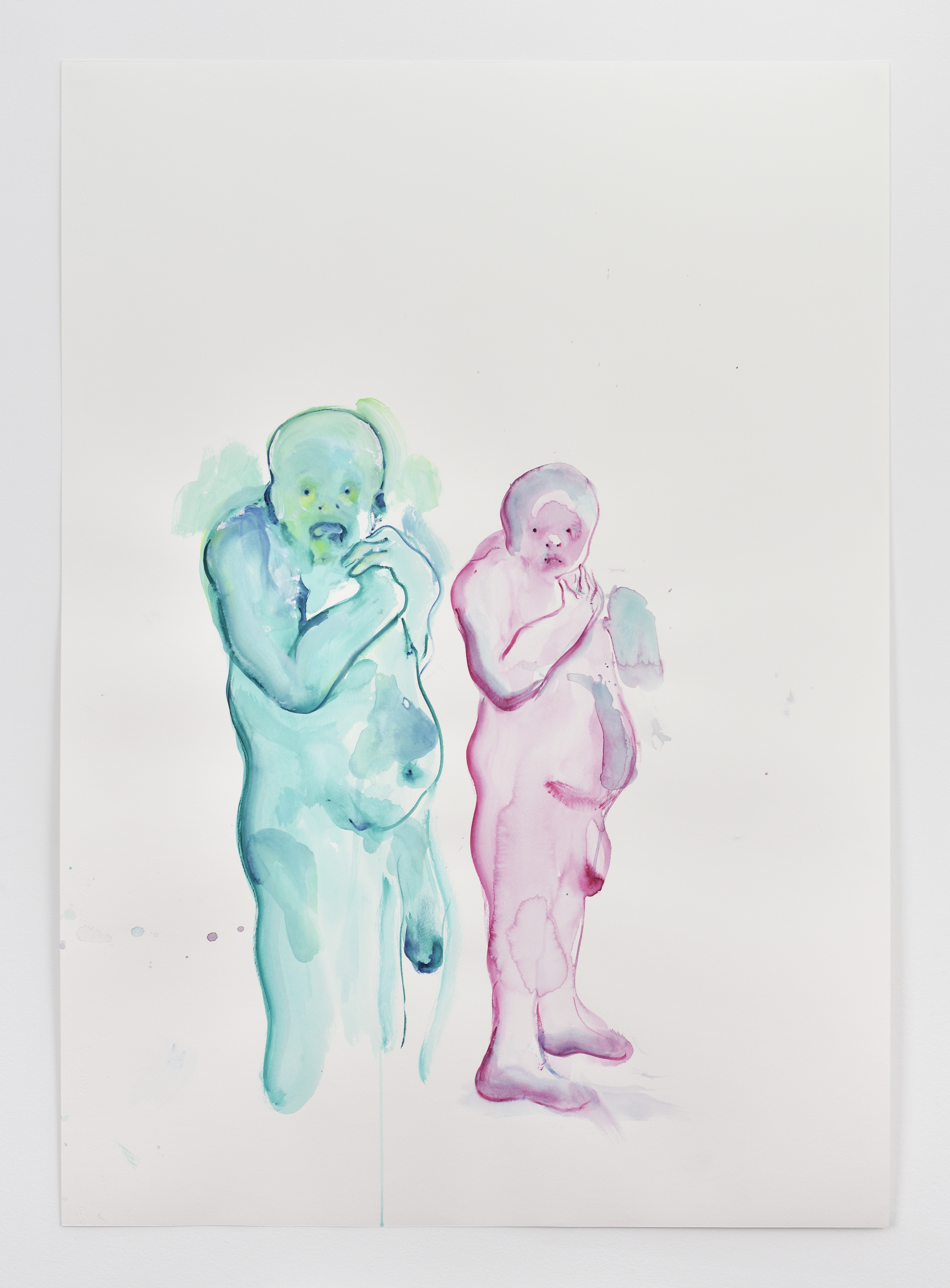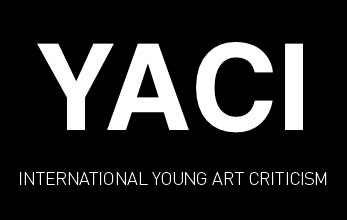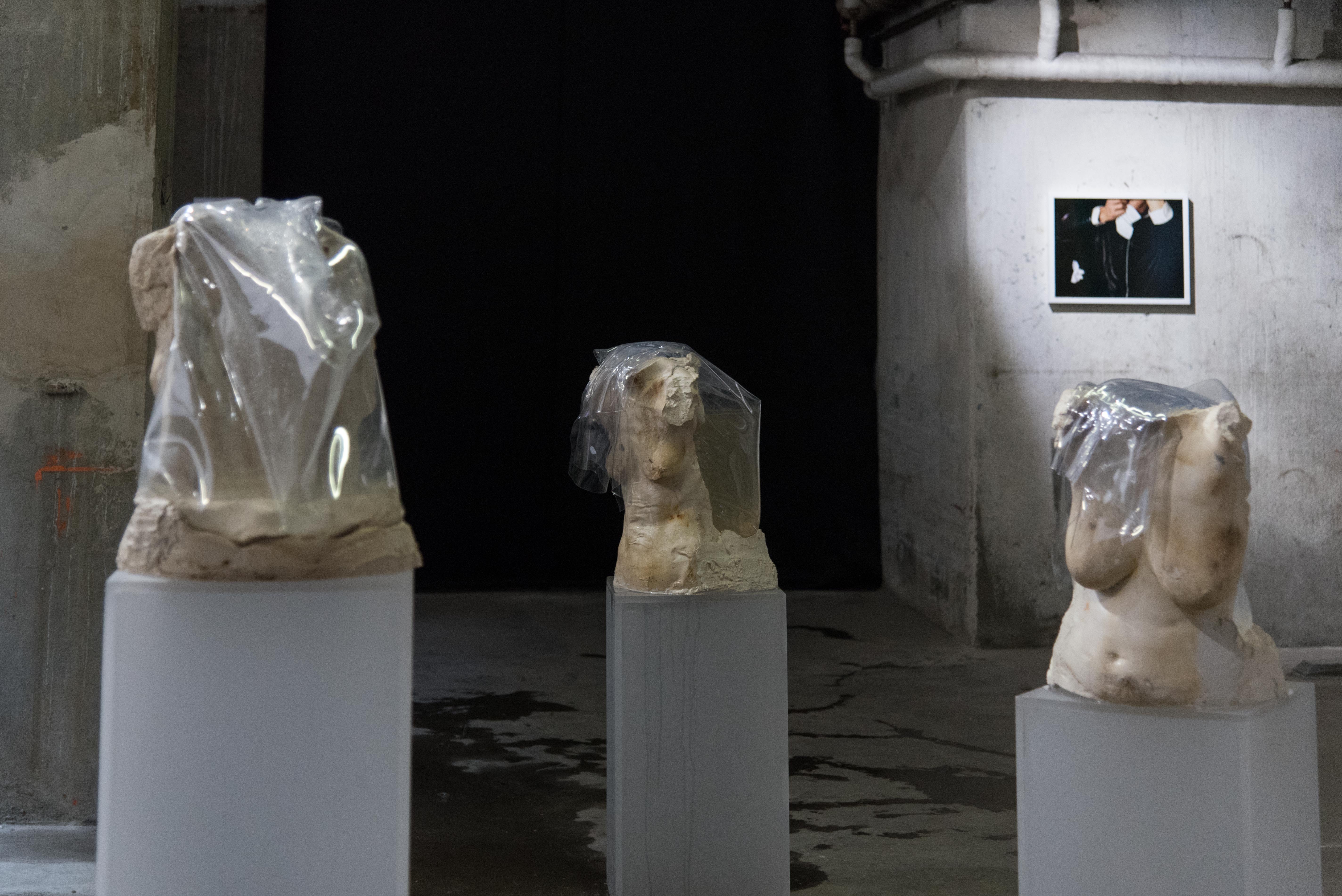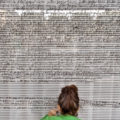THE MARGINALS OF VINCENT GICQUEL
The exhibition Debout ! was a cry that escaped all summer from the Convent of the Jacobins of Rennes. Sometimes plaintive, sometimes furious, sometimes even injunctive, this cry has not remained for me one of those shards that strike the eardrum without ever penetrating the memory. Perhaps it would have been otherwise if Caroline Bourgeois had not held this megaphone that is the police station. Because by its scenography, the exhibition already gathers the first steps of answers that are often expected in front of the works. This text is intended to provide more on Vincent Gicquel’s work alone.

Peinture à l’huile sur toile 190 x 146 cm
© Rebecca Fanuele – Courtesy Galerie Thomas Bernard – Cortex Athletico
Like an animal that would be quarantined when it arrived in a new home, Vincent Gicquel’s work was exposed alone. But here, the objective was not to give the last one to arrive in François Pinault’s stable time to make his mark. Or even to allow visitors to apprehend an artist they were meeting for the first time. I like to think that the reasons for this exclusion are much more substantial.
Because the creatures Vincent Gicquel paints require this space, this isolation. Look at them… Their big, stunned eyes stare at the absurdity of this world and their feelings flicker from canvas to canvas. Is it the terror or anger that inhabits them at the sight of Adel Abdessemed’s little Vietnamese girl fleeing the napalm monster, or the little Hitler punished in a corner? The honesty of their reaction to these monstrosities is probably much more important. This is why it was necessary to put them on the sidelines of this exhibition. Because there are clamours that a society must keep quiet for its proper functioning, it will always banish the man who never lies. And never lie, that’s what Vincent Gicquel’s paintings do. In the face of the world’s torments, human atrocities and violence concentrated in the works in the exhibition, they are like the child who, for lack of empathy, will not be able to judge what is right to say or do. Polymorphic perverts, Vincent Gicquel’s characters act, and that’s it. Perhaps that is why they are so unbearable to us.
Characters of the future or ghosts of a proven existence, they are simply there in their paper cell. Therefore, it is the very essence of what constitutes our character that will bring them to life. These men, coiled in their translucent cocoons, are not devoid of humanity, on the contrary, they have at their disposal all that constitutes it. And what could be more constitutive of it than the pleasure of enjoying it? Enjoy a stimulating reflection, an orgasmic embrace, a saving drink… In itself, Vincent Gicquel’s painting is not erotic. If you consider it as such, the artist will remind you quite quickly that there are no holes to fill. Admittedly, his paintings are punctuated by phallic symbols; but in them it is the naive impurity of a child who plays with his sex that is represented, even more so, it is creation in its pure state, the ultimate instinct of life.

110 x 75 cm
© Rebecca Fanuele – Courtesy Galerie Thomas Bernard – Cortex Athletico
Finally, Vincent Gicquel’s figurative painting is perverse only in what it provokes the viewer. If it does not offer us many descriptive loopholes, it nevertheless gives rise to an uncontrollable desire to extrapolate. Undoubtedly because of the beauty of its pastel colours, they are those of a child’s room in which one feels safe. What a shock, then, to discover these creatures engaged in strange activities. The approach is purely Freudian; Vincent Gicquel shows us that all the pleasures of this world are within reach, but terribly repressed. And it is in this that being faced with these characters conscious of their desires repels us like this.

Peinture à l’huile sur toile 190 x 146 cm
© Rebecca Fanuele – Courtesy Galerie Thomas Bernard – Cortex Athletico
The mistake would now be to believe that Vincent Gicquel’s entire work is nestled in these postures and looks. Because if they seem to take up all our attention, playful motifs will inevitably disturb our apprehension of the paintings. Simple ornaments or ridiculous jokes, these stars sin like a false note that comes to interfere in a melodious journey. Far from being mere details, they add satire and complexity to the artist’s subject. Indeed, what could be more symbolic than the star to highlight the complexity of humanity? These few branches were simultaneously proudly carried on the chest of the American sheriff while oppressing the Jewish people under the Third Reich, they are here the emblem of the failure of Manicheism. On the contrary, they are here like the asterisk that at the end of a sentence completes the author’s point, they are the orbit carrying a glimmer of hope, the certainty that Man will always rise again. For like Sisyphus, who chose never to despair when his stone fell tirelessly on the other side of the mountain, the human being in the face of the absurdity of this world will be forced to make his own fundamental choice. A choice that Vincent Gicquel pauses violently in front of us: suicide or life.
Remerciements : Roxane Rabieaux.





